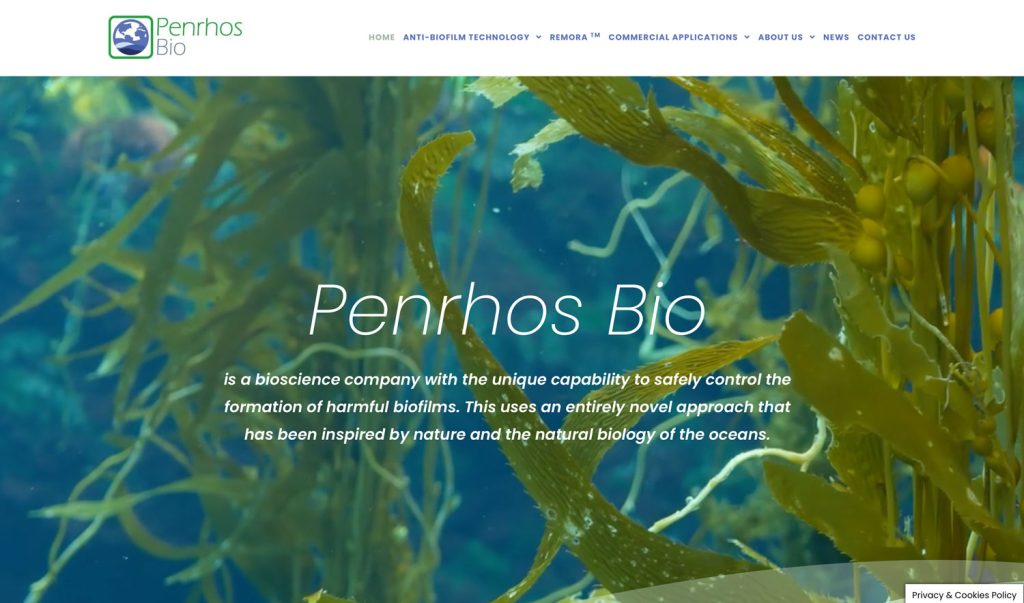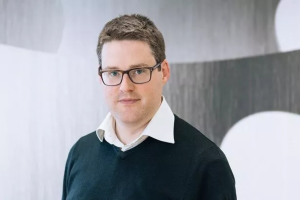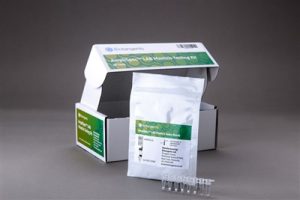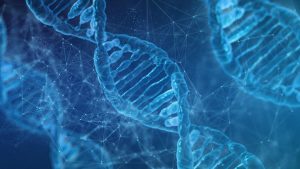Technology is based on seaweed, the ocean’s defence solution. Launch of biotechnology company, Penrhos Bio, to scale anti-microbial solutions.
Unilever and Innova Partnerships have launched a joint venture biotechnology company, Penrhos Bio, to commercialise a technology that means self-cleaning surfaces could become a reality.
The world first breakthrough has come with the introduction of an organic compound called Lactam which can block, or prevent, bacteria and mould on everyday surfaces.
This patented technology, which Unilever has been researching for over 10 years, is developed from natural chemicals in seaweed biology and has the potential to be used in a range of situations – from preventing fungal growth in washing machines and dishwashers to self-cleaning banknotes.
Everyday items including clothing and kitchen surfaces are constantly challenged by bacterial contamination. Over 80% of bacterial infections in people are estimated to involve the formation of biofilms, a collection of microorganisms that grows on many surfaces. These microorganisms are formed and developed through bacterial communications systems, but now research has found that by disrupting these systems it’s possible to not only prevent them from growing in the first place but to keep the surfaces cleaner for longer.
Penhros Bio could help to tackle some of the biggest societal and environmental challenges of the 21st century. It represents significant opportunity across multiple sectors, including healthcare, textiles, and marine and could even be used in medical fields where microbial biofilms are commonplace.
Dr Neil Parry, R&D Programme Director – Biotechnology and Biosourcing, Unilever, explained: “This technology replicates the natural cleaning process of seaweed; keeping surfaces clean and repelling unwanted invaders from its direct environment. This biology works in extreme conditions such that it will keep working in dirty waters by blocking the communication between bacteria so that it cannot colonise and build up on healthy surfaces of the plant. This is what we have successfully replicated in the lab, and now we are ready to start trialling this in our Unilever cleaning products.”
Dr Jon Hague, Unilever’s Vice President for Science & Technology, Unilever Homecare said: “The commercialised use of Lactam presents a significant opportunity for cleaning products globally and could revolutionise the industry. However, what we have found is a unique technology in which its uses are almost limitless. We recognise what this technology can represent at scale for many sectors outside of Unilever’s portfolio. Through Penrhos Bio, we want to connect with other industries that would benefit from using this solution.”
Professor Steve Howell, Founder of Innova Partnerships said: “This is such an exciting and innovative space. We’re currently working with license partners for banknotes and dental applications, but there are so many more uses in which this technology could benefit.”
Penrhos Bio offers this technology to license across a range of sectors. Penrhos Bio business model is to develop relationships with licence partners across a range of sectors such as machine cleaning, marine, textiles and healthcare. Discussions are already underway with licence partners for banknote and dental applications. Penrhos Bio is supported by Unilever operating out of the Materials Innovation Factory in Liverpool, UK.






